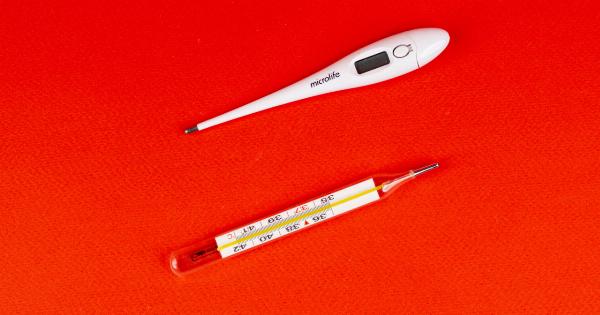During pregnancy, it is essential to pay extra attention to what you eat to ensure the health and well-being of both you and your baby. While some foods are rich in essential nutrients, others may pose potential risks to the development of your baby.
In this article, we will explore the importance of food safety during pregnancy and provide guidelines to help you make informed choices.
Benefits of a Healthy Diet during Pregnancy
A well-balanced and nutritious diet plays a crucial role in supporting the growth and development of your baby. It also helps you maintain good overall health throughout pregnancy. Here are a few benefits of following a healthy diet:.
- Provides essential nutrients: A healthy diet ensures that you and your baby receive the necessary vitamins, minerals, and other nutrients for optimal growth and development.
- Helps prevent deficiencies: Consuming a variety of nutrient-rich foods lowers the risk of nutrient deficiencies, such as iron or folic acid deficiency, which can lead to complications during pregnancy.
- Promotes healthy weight gain: A balanced diet helps you achieve appropriate weight gain during pregnancy, which is important for your baby’s growth and can reduce the risk of gestational diabetes and other complications.
- Reduces the risk of birth defects: By including foods rich in essential nutrients like folate, you can minimize the risk of certain birth defects, such as neural tube defects.
- Improves overall well-being: A healthy diet supports your immune system, energy levels, and overall well-being, helping you cope with the physical and emotional demands of pregnancy.
The Importance of Food Safety
Food safety is of utmost importance during pregnancy to protect yourself and your baby from potential risks of foodborne illnesses.
Due to the changes in your immune system during pregnancy, you are more susceptible to infections from bacteria, viruses, and parasites present in contaminated foods.
Here are some key reasons why food safety is crucial during pregnancy:.
- Reduced risk of foodborne illnesses: Practicing proper food safety measures minimizes the risk of infections, which can have severe consequences for both you and your baby.
- Prevention of listeriosis: Listeriosis is a severe infection caused by the bacterium Listeria monocytogenes. It can lead to miscarriage, stillbirth, premature delivery, or life-threatening infections in newborns.
- Avoidance of toxoplasmosis: Toxoplasmosis is caused by the parasite Toxoplasma gondii, commonly found in undercooked meat and contaminated soil. Infections during pregnancy can result in miscarriage, birth defects, or vision problems in the baby.
- Precaution against mercury exposure: High levels of mercury in certain fish can damage the developing nervous system of your baby. It is essential to be mindful of the types and amount of fish you consume.
- E. coli and salmonella prevention: These bacteria are commonly found in undercooked meats, eggs, and unpasteurized dairy products. Infections can lead to food poisoning, dehydration, and other complications.
Food Safety Guidelines during Pregnancy
Follow these food safety guidelines to ensure a healthy and safe pregnancy:.
1. Wash your hands:
Always wash your hands thoroughly with soap and water before handling food, especially fruits, vegetables, and raw meat.
2. Practice proper food storage:
Refrigerate perishable foods promptly and avoid consuming expired or spoiled products. Keep raw meats separate from other foods to prevent cross-contamination.
3. Cook meats thoroughly:
Cook all meats, including poultry, to the appropriate internal temperatures to kill harmful bacteria. Use a food thermometer to ensure their safety.
4. Avoid certain fish:
Avoid high-mercury fish such as shark, swordfish, king mackerel, and tilefish. Opt for low-mercury alternatives like salmon, shrimp, and catfish, which are rich in omega-3 fatty acids.
5. Be cautious with deli meats and hot dogs:
Deli meats and hot dogs may contain Listeria, so it is recommended to heat them until steaming hot before consumption.
6. Choose pasteurized dairy products:
Ensure that all dairy products, such as milk, cheese, and yogurt, are pasteurized to eliminate the risk of bacterial infections like Listeriosis.
7. Handle eggs carefully:
Always cook eggs thoroughly, avoiding dishes with raw or partially cooked eggs, as they may contain Salmonella.
8. Be wary of certain fruits and vegetables:
Wash all fruits and vegetables before eating to remove any potential bacteria or pesticides. Avoid unpasteurized juices and sprouts, as they can harbor harmful bacteria.
9. Avoid high-risk foods:
Avoid raw or undercooked seafood, raw sprouts, unpasteurized cheeses, pâté, and other high-risk foods that may contain harmful bacteria.
10. Take extra care with leftovers:
Ensure that all leftovers are reheated properly to kill any bacteria present. Discard any refrigerated leftovers after four days to prevent foodborne illnesses.
Conclusion
Ensuring food safety during pregnancy is essential to protect yourself and your baby from potential risks of foodborne illnesses.
By following the guidelines mentioned above and making informed choices, you can enjoy a healthy and nutritious diet while minimizing the chances of infections or complications. Remember, it’s always better to be cautious and prioritize your and your baby’s well-being.





























